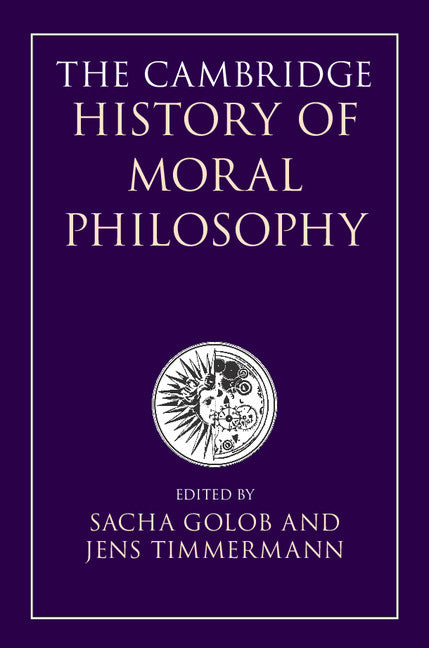Freshly Printed - allow 4 days lead
Couldn't load pickup availability
The Cambridge History of Moral Philosophy
A comprehensive and engaging overview of the history of Western and related moral thought, exploring all the central thinkers and themes.
Sacha Golob (Edited by), Jens Timmermann (Edited by)
9781107033054, Cambridge University Press
Hardback, published 7 December 2017
762 pages
23.6 x 15.9 x 4.3 cm, 1.17 kg
With fifty-four chapters charting the development of moral philosophy in the Western world, this volume examines the key thinkers and texts and their influence on the history of moral thought from the pre-Socratics to the present day. Topics including Epicureanism, humanism, Jewish and Arabic thought, perfectionism, pragmatism, idealism and intuitionism are all explored, as are figures including Aristotle, Boethius, Spinoza, Hobbes, Hume, Kant, Hegel, Mill, Nietzsche, Heidegger, Sartre and Rawls, as well as numerous key ideas and schools of thought. Chapters are written by leading experts in the field, drawing on the latest research to offer rigorous analysis of the canonical figures and movements of this branch of philosophy. The volume provides a comprehensive yet philosophically advanced resource for students and teachers alike as they approach, and refine their understanding of, the central issues in moral thought.
List of contributors
Acknowledgements
Introduction Sacha Golob and Jens Timmermann
1. Ethics before Socrates Catherine Rowett
2. Socrates and Sophists A. G. Long
3. Plato James Warren
4. Aristotle Michael Pakaluk
5. Epicureanism and hedonism Voula Tsouna
6. Stoicism Brad Inwood
7. Ancient skepticism Katja Vogt
8. Neo-Platonism Alexandrine Schniewind
9. Early Christian ethics: killing the innocent Sarah Byers
10. Boethius, Abelard and Anselm John Marenbon
11. Medieval Jewish ethics Tamar Rudavsky
12. Moral philosophy in the medieval Islamicate world Anna Akasoy
13. 'Christian Aristotelianism'? Albert the Great and Thomas Aquinas Tobias Hoffmann and Jörn Müller
14. Duns Scotus and William of Ockham Tobias Hoffmann
15. Humanism Sabrina Ebbersmeyer
16. The Protestant Reformation Jesse Couenhoven
17. Descartes's provisional morality Lisa Shapiro
18. Hobbes Sharon Lloyd
19. The Cambridge Platonists Sarah Hutton
20. Bayle Jean-Luc Solère
21. Leibniz Gregory Brown
22. Spinoza Stephen Nadler
23. Pascal Desmond M. Clark
24. Locke and Butler Stephen Darwall
25. Shaftesbury, Hutcheson, and the moral sense James A. Harris
26. Hume Paul Guyer
27. Smith and Bentham Craig Smith
28. Rousseau Susan Meld Shell
29. Rationalism and perfectionism Stefano Bacin
30. Kant Jens Timmermann
31. Fichte Allen Wood
32. Hegel Dudley Knowles
33. Mill Christopher MacLeod
34. Schopenhauer Alistair Welchman
35. Kierkegaard Zach Manis
36. American transcendentalism Russell Goodman
37. Nietzsche Lawrence Hatab
38. Marxism Jeffrey Reiman
39. Sidgwick Katarzyna de Lazari
40. Pragmatism Cheryl Misak
41. British idealism Robert Stern
42. Ethical intuitionism Philip Stratton-Lake
43. Husserl and phenomenological ethics Nicolas de Warren
44. Ethics in Freudian and post-Freudian psychoanalysis Edward Harcourt
45. Noncognitivism: from the Vienna circle to the present day John Eriksson
46. The Frankfurt school Fred Rush
47. Heidegger Sacha Golob
48. Sartre Sebastian Gardner
49. French ethical philosophy since the 1960s Todd May
50. Wittgenstein's ethics and Wittgensteinian moral philosophy David Levy
51. Anti-theory Simon Robertson
52. Discourse ethics Peter Niesen
53. Decision theory Ben Eggleston
54. Rawls Katrin Flikschuh.
Subject Areas: History of ideas [JFCX], Ethics & moral philosophy [HPQ], History of Western philosophy [HPC]


